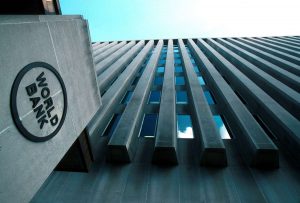World Bank approves $18m to strengthen health systems in West Africa
December 9, 2022391 views0 comments
By Cynthia Ezekwe
Read Also:
- Analysts warn of financial fallout as Senate approves Tinubu’s $2.2bn loan
- Access Bank expands African presence with acquisition of Standard…
- Nigerian airlines not among African carriers with world’s 3 major alliances
- Zenith Bank boosts Nigerian tech space with N77.5m funding
- Customers’ deposits in failed Heritage Bank safe – NDIC
The World Bank Group has approved a total of $18 million in two additional financing from the International Development Association (IDA) to strengthen health systems and support the implementation of the ongoing Regional Disease Surveillance Systems Enhancement (REDISSE) Programme.
According to a statement by the international financial institution, the additional financing will support the implementation of the ongoing Regional Disease Surveillance Systems Enhancement Programme (REDISSE), respectively in Benin ($6 million), Senegal ($7 million) and the West Africa Health Organization ($5 million).
The REDISSE programme was established prior to the COVID-19 pandemic and approved in four phases in 2016, 2017, 2018, and 2019 respectively with a total financing from the World Bank of $657 million. The new additional financing bring this total to $688.13 million.
The programme aims at strengthening national and regional capacities to address disease threats at the human, animal, and environmental interface, which is the source of most known epidemic-prone and novel pathogens.
The regional multi-sectoral programme involves sixteen countries in West and Central Africa – Angola, Benin, Chad, Central Africa Republic, Congo Republic, Democratic Republic of Congo, Guinea, Guinea Bissau, Liberia, Mali, Mauritania, Niger, Nigeria, Sierra Leone, Senegal, and Togo.
In addition to the sixteen beneficiary countries, two regional entities;the Economic Community of West African States (ECOWAS) and the Economic Community of Central African States (ECCAS) , also participate in the program to ensure a high-level policy and regulatory harmonization with a cross-sectoral approach aimed at improving cooperation and coordination of disease surveillance and epidemic preparedness across West and Central Africa.
REDISSE has proved to be instrumental to the initial emergency COVID-19 response activities, repurposing its funding to allow participating countries to undertake surveillance and contact tracing activities; conduct laboratory testing and diagnosis; procure essential drugs, equipment, material, and commodities; and organise training for healthcare staff.
According to Boutheina Guermazi, World Bank regional integration director for sub-Saharan Africa, the Middle East and Northern Africa,the existence of the REDISSE programme in the countries prior to COVID-19 allowed the use of an already established platform, nascent systems, and financing to quickly kick-start COVID-19 emergency response, thanks to the flexibilities allowed by the programme’s design.

